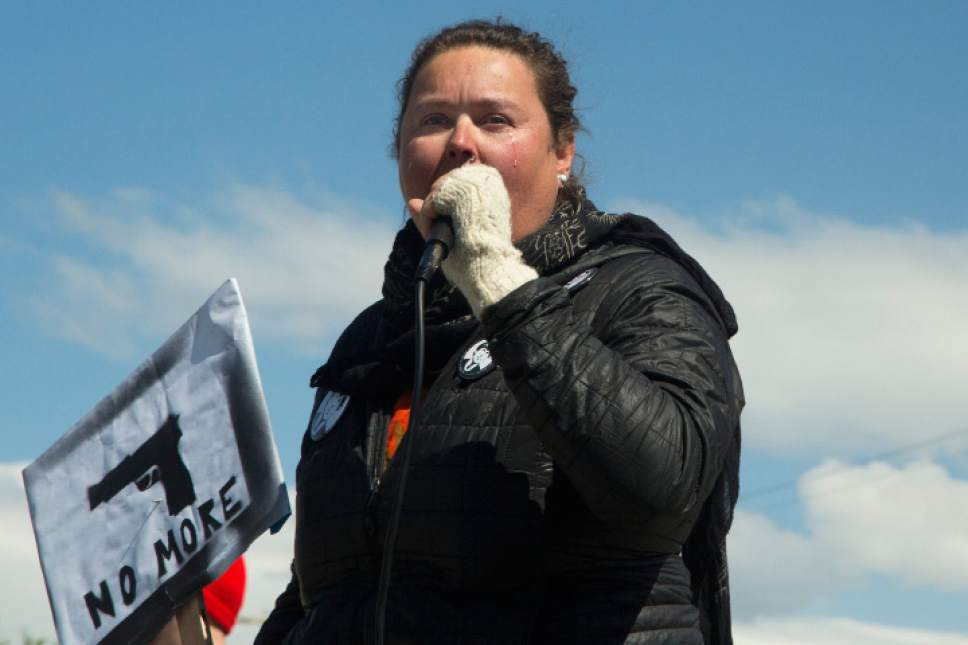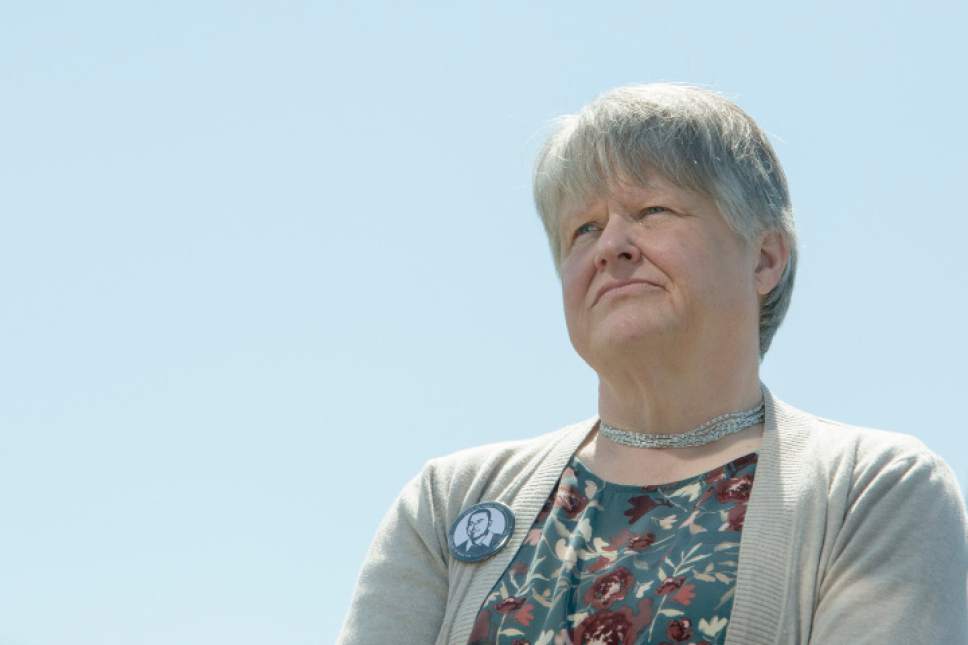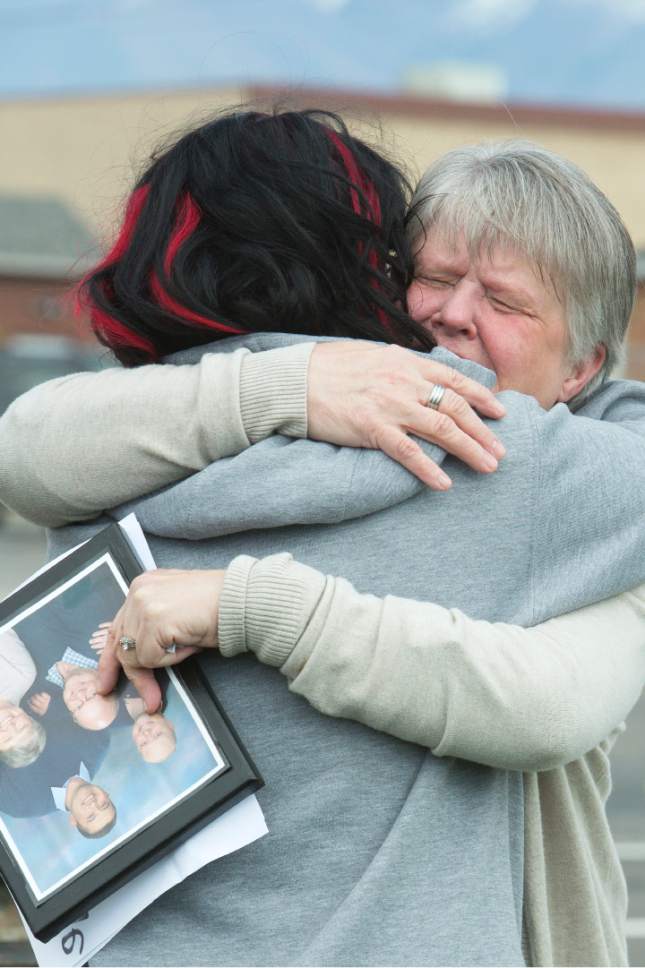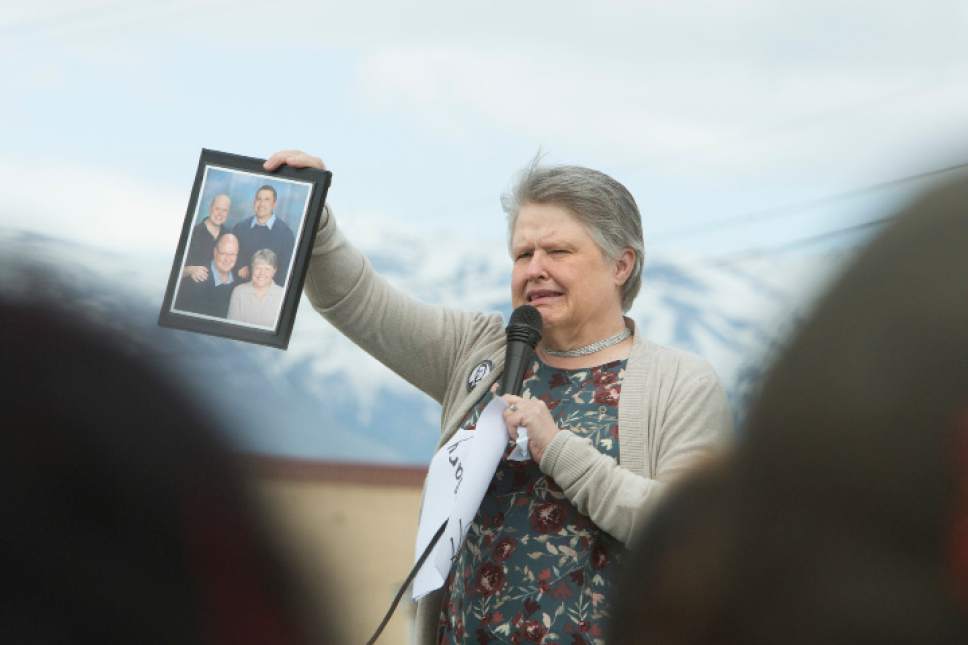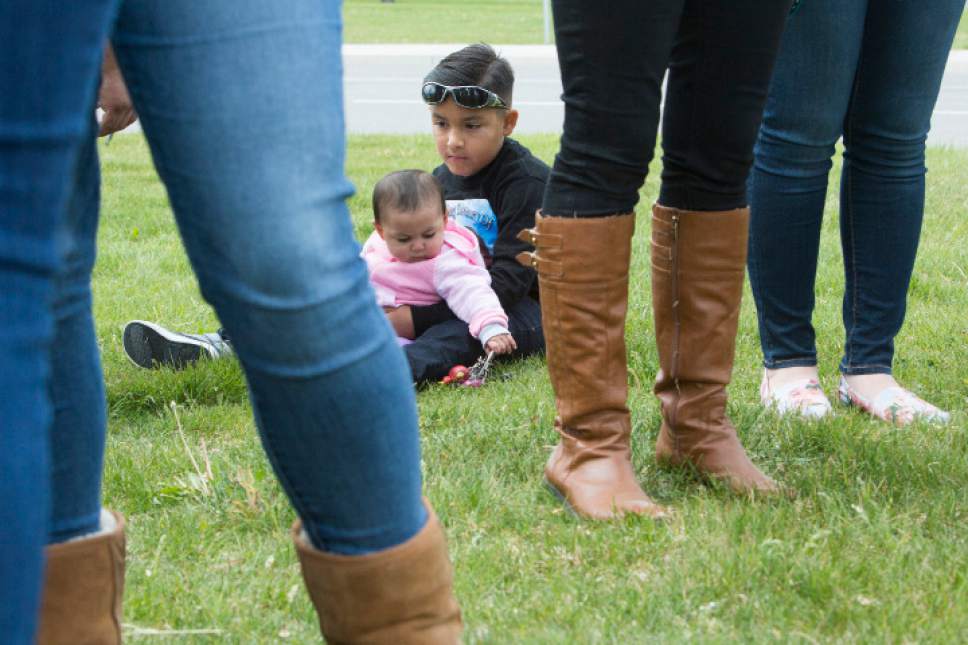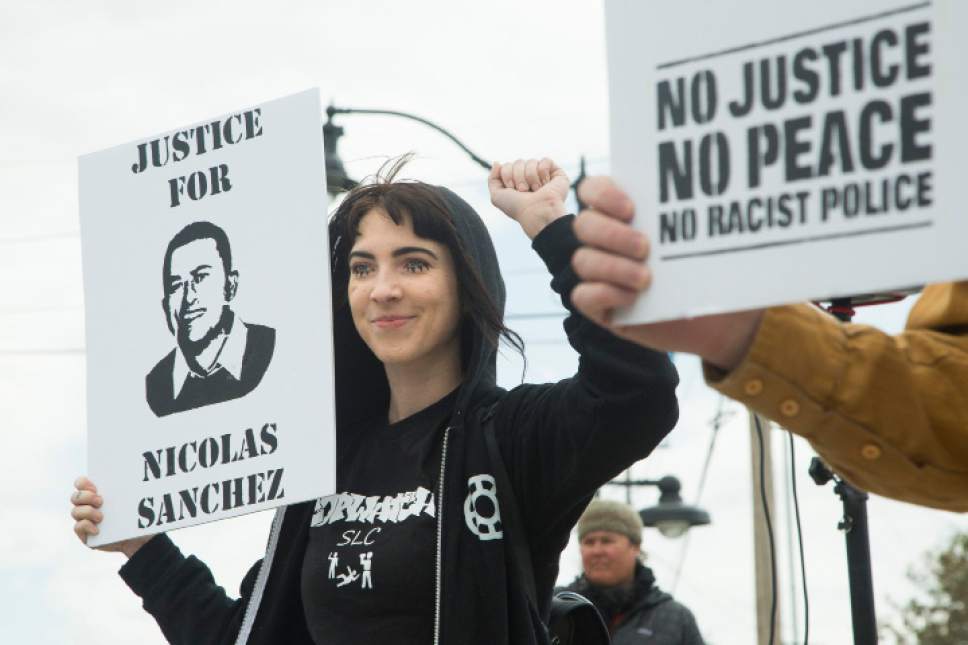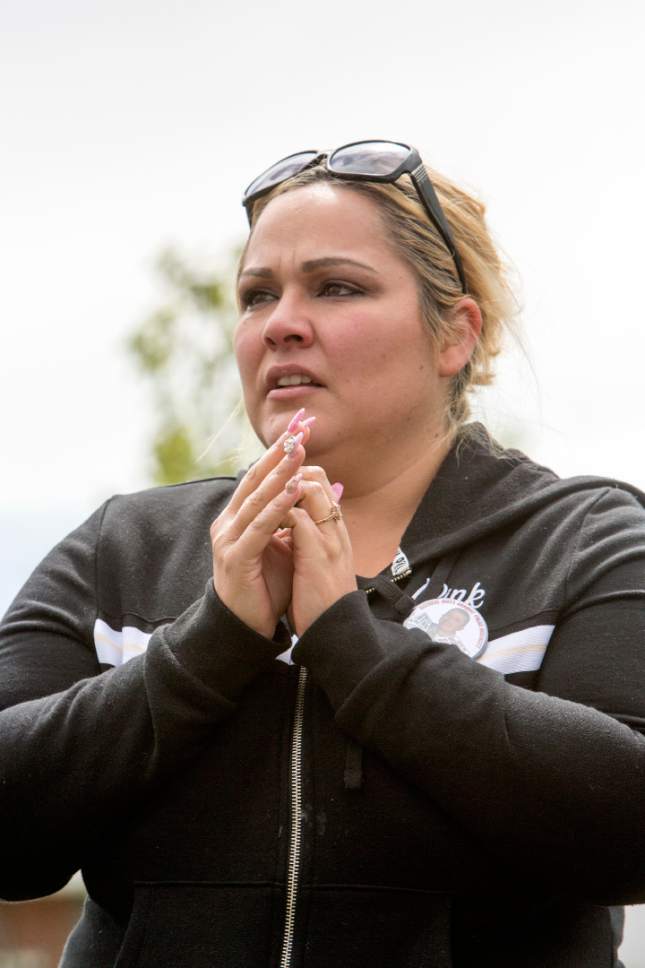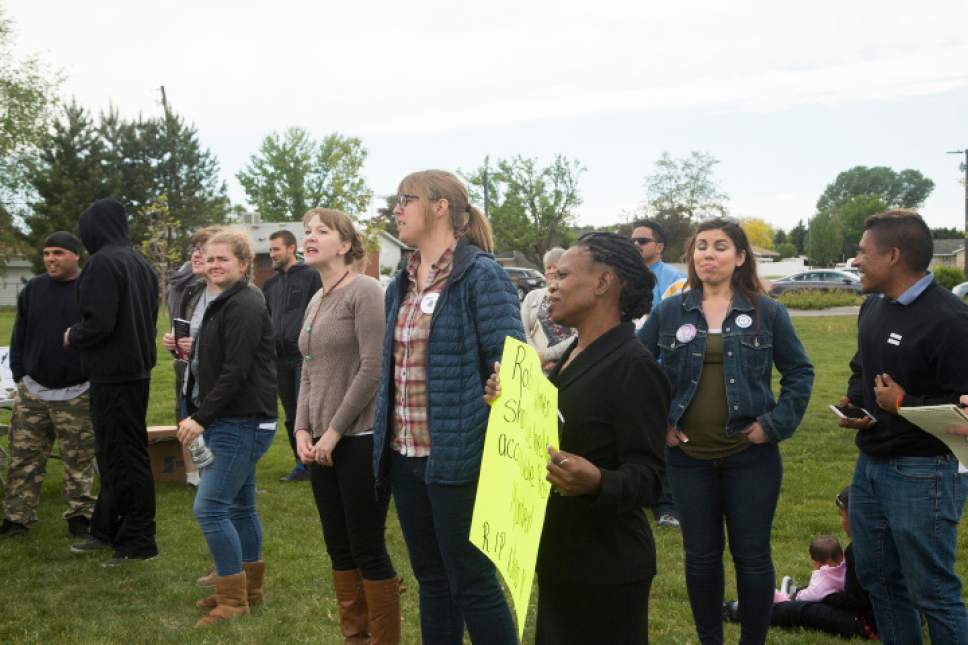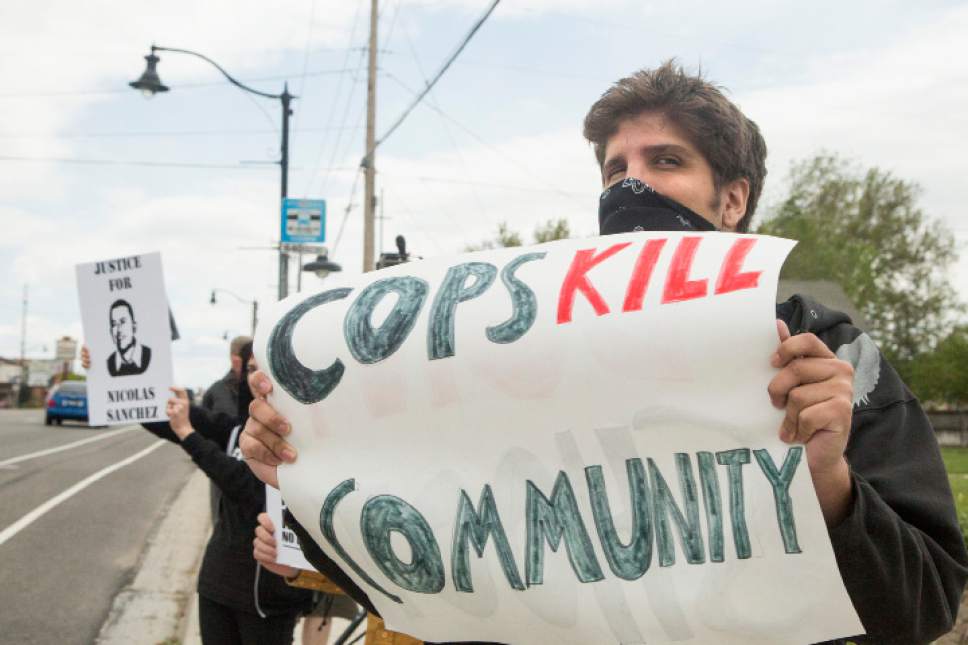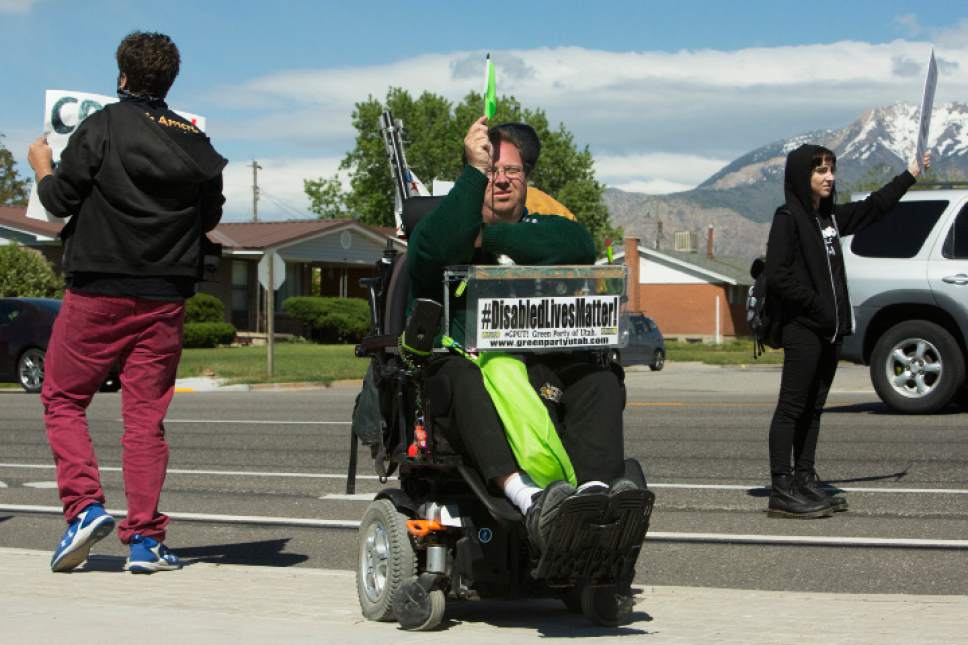This is an archived article that was published on sltrib.com in 2017, and information in the article may be outdated. It is provided only for personal research purposes and may not be reprinted.
Roy • One week after Nicolas Sanchez was shot and killed by police officers, Annette and Rod Olsen got a bill in the mail: $3,000 for ambulance services.
A month later, they received another. Hospital care: $20,000.
For the man the Olsens considered a son — letting him stay at their Layton home when he had nowhere else to go — making those medical payments has been an excruciating reminder that he's gone. Watching the body camera footage of his death has been worse.
"They kept firing and firing at him," Annette Olsen said, choking back tears.
She spoke to a crowd of 35 people Saturday at a Utah Against Police Brutality rally in front of the Roy Police Department. For more than 90 minutes, the group mourned the fatal shooting of Sanchez and called for the two officers involved to be fired. "No justice. No peace. No killer police," they chanted.
The officers, whose identities have not been released, were placed on paid administrative leave following the Feb. 21 incident.
Shortly after 10 p.m., the officers responded to a call from a convenience store clerk about a man loitering and "acting suspiciously." When they got to the gas station at 1900 West and about 4400 South, Sanchez was standing in the door.
The minute-long police video released in March shows officers asking him to step away and talk to them. Sanchez hesitates and says he hasn't done anything wrong. As he steps toward the police, Sanchez fusses with his pants and jacket, revealing a gun in his waistband. The officers tell him not to touch it and he starts to back away.
One of the men then tries to grab Sanchez, but he runs. The officer tackles him to the ground, knocks his gun loose and shoots him with it, a Roy city attorney has said. The second officer also fires multiple gunshots during that time.
Neither officer was injured. Sanchez died at the scene. The Olsens didn't find out until the next day.
They first met Sanchez in 2008 when he did construction on an addition to their home. The couple grew to love him — and included him in their family portraits, one of which they pulled from the wall of their living room and carried at the Saturday rally. Annette Olsen gave Sanchez a job at her business, Pet Pals Place, and Rod Olsen gave him a bed in their home. Sanchez constantly made them laugh.
By January 2017, Sanchez had completed his probation after serving five years in jail for a previous firearm violation and found full-time employment operating a forklift. The next month, he was dead.
"He was trying to turn his life around," Rod Olsen said.
The couple says the officers who shot Sanchez — both of whom had been on the force for a few years — were "too green." They blame the city of Roy for being "really negligent" in not providing proper training and supervision.
Roy city officials have insisted police "acted appropriately" in the case and did what they were "expected to do under the circumstances."
The Olsens were hugged and consoled by Lady Hernandez, 32, who drove from California to attend the rally. Hernandez called Sanchez a "childhood friend." He also was the father of her 16-year-old daughter.
"I don't know why they shot," Hernandez said, tears rolling down her cheeks. "It's devastating to me."
She questioned why the officers didn't first try handcuffs or a taser to subdue Sanchez. Hernandez also worries that race — Sanchez was Latino — played a factor in the exchange.
Among the attendees were family members of other Utahns killed by police in recent years. Gina Thayne spoke about her nephew, Dillon Taylor, who was shot by a Salt Lake City officer in August 2014.
Like Sanchez, Taylor, also Latino, was standing outside a convenience store when approached by police, who thought he had a weapon. Though Taylor was unarmed, the Salt Lake County district attorney later ruled the shooting was justified.
"He was no threat and he was assassinated by a paid servant," Thayne said. "It seems like those wearing a badge have become above the law."
Heidi Keilbaugh, 46, remembers the day in January 2015 when Salt Lake City police shot her boyfriend of five years, James Barker. She was behind the crime scene tape but caught a glimpse of Barker's feet on the concrete of their driveway.
"It scars you," she said, carrying a poster that said "no more" with a black spray-painted image of a pistol. Keilbaugh sympathized with Sanchez's case, pleading "there's got to be a better way."
During the rally, she stood along 1900 West in Roy as cars honked in support of the group. One man held a sign that said "Don't shoot" and wore a black bandana around his face. Another promised he wouldn't forget Sanchez. They all called for justice.
"When do we want it?" asked the organizer into a microphone.
"Now," the group shouted back in unison.
Twitter: @CourtneyLTanner


